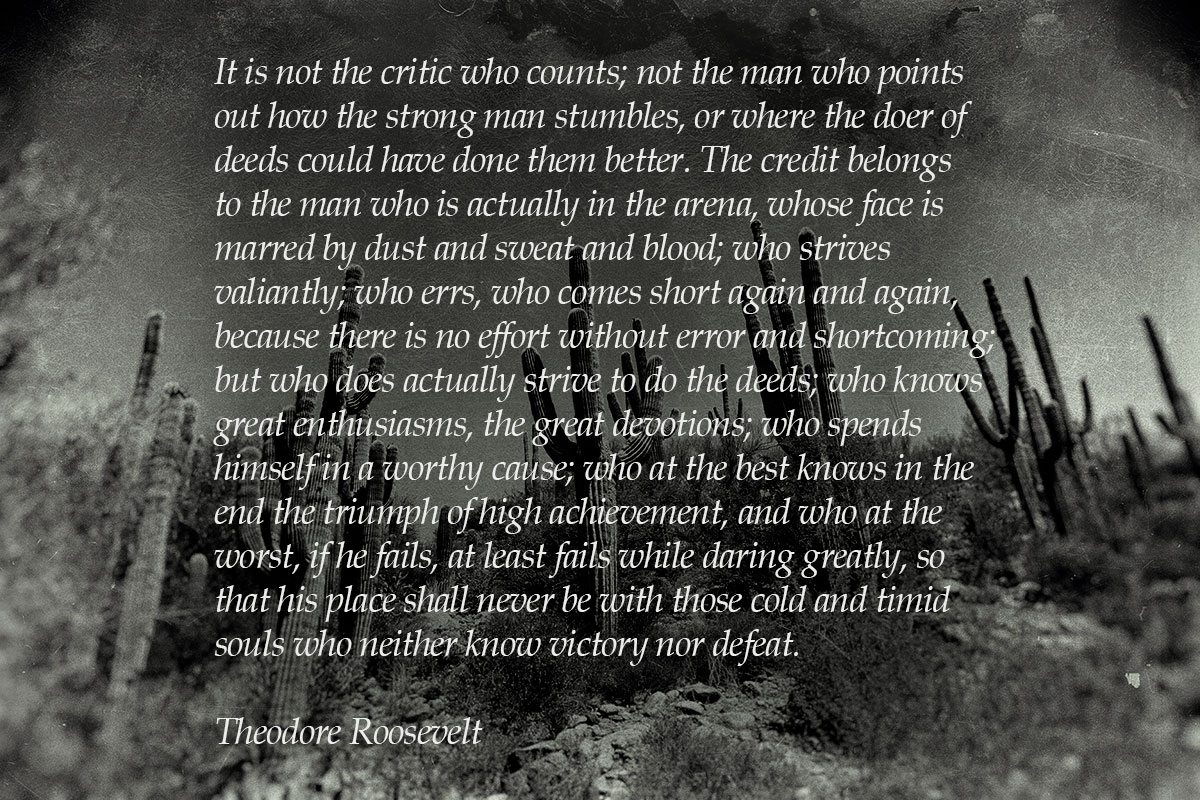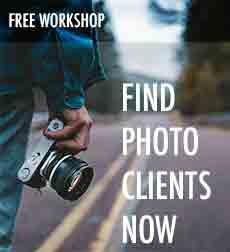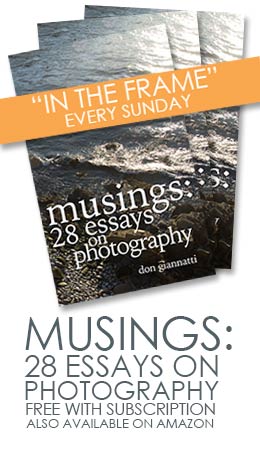Should We Listen To Critics or Show Them The Door?
Ahhh… the world of the artist. A place where we can nurture our ideas and share our bountiful creativity to others who will accept it into their lives with open arms, and smiles of gratitude.
Or… not.
There seems to always be someone who doesn’t get what we are doing. Someone who finds it so desperately wanting as to cause them to sit at a keyboard and tell us that we are wrong… our work is wrong… our art is wrong.
“It’s just wrong, dagnabbit!”
And all this time, we were laboring under the impression that we were creating something that others would find appealing, not wrong. What does that mean anyway?
How can a piece of art, a photograph, a frame from our experience be “wrong”?
I will answer this in a few, so hang tight.
Critics. They produce nothing. They rarely know much about the art we create. They are usually not prepared for much of anything in the way of actually having much to say, rather it is the saying of that nothing that is their reason for being.
Now, I am not talking about critics who actually know a bit about the work, who delve into the motivations and the artistic goals of the artist, who can compare and contrast and understand the value of the work as it stands before them. There are a few of those out there, and while we may not agree with them all the time, we do know their knowledge runs deep, and that counts for something.
No, I am discussing the critics that are unsolicited noise brought to a higher volume with the social media frenzy of armchair experts. Followers of movements, online gurus, and phocelebs who create a frenzy with every “off camera flash” image they create. Being a devotee of someone else seems to be all that is needed to have permission to spew unrelated criticism of others work, or make judgements as to its value.
How we deal with this noise is important. Many budding artists have been sidelined by the nagging doubt as to their spot in the art world brought on by a casual remark on Facebook, or an unflattering note made by ‘someone on twitter’… and that, that is wrong!
A couple of interesting phenomena here.
Artists seem to give more weight to the negative remarks than the good ones.
Why? Why do we do that?
100 people see our image: 90 people like it, 8 people are non-committal, and two of them do not like it. One of those detractors adds a personal note like “This work is getting boring to me. I think you need to kick it up a notch or you will never be any good.”
Who does the artist seem to remember the most? Those ninety people who love it? Nope. The ones that didn’t? Nope… the one who decided to add a bit of criticism to the mix. The artist will focus on that one negative and bring themselves to a panic wondering if they really do need to ‘kick it up a notch’ even though no one on the planet has any idea what that really means…
How do we stop that from happening?
We stop it. Ourselves.
Having detractors is part of the way we know we are doing something right. No artist can please everyone. Avedon did not get every job he wanted. Spielberg has had to ‘sell’ himself as a director, and even the greatest actors around still have to audition.
The creation of art focused on the smallest common denominator usually produces art that is of no value anyway. If you want to make photographs that fly off the shelf at Walmart, you will be sad to find out that there are still those who will not buy them.
Detractors are not important. We simply stop giving them power. Know they exist, forget about any usefulness for them other than to remind you that you are not creating work for everyone.
And you shouldn’t.
The end of the ‘expert’ phenomena has not been of much help, that is for sure. People have gone through a lifetime of believing that every opinion matters, everyone’s ideas should be heard.
While that may play well in the skules, it is pure bullshit in the real world. An opinion that 4+4=9 is of no value, nor should we give accolades for being close. If I want to know why my refrigerator is acting up, I need not bother with my 10 year old daughter, nor the guy who sells slurpies at the QuikMart. I need someone who knows refrigerators. An expert.
Today, too many people think they are experts in photography. They are well versed in the lingo, have themselves an “off camera flash” and can ‘beat the sun’ for a cool looking picture. So naturally they have all that is needed to tell you what you are doing wrong. And they want to do it from the anonymity of the interwebs… safe from all retribution or inquiry.
STFU, dude.
If I want to get portfolio help, I will go to someone who I respect, who has similar sensibilities, who I can believe in for realistic ideas and motivations. I would not seek out someone who simply did not meet that criteria.
Nor would any of you…
So why do we even listen when the criticism is offered without our solicitation? Is a remark on Facebook telling us to ‘work on our processing’ really worthy of much attention?
If it comes from Rob Haggard or Selina Maitreya, then perhaps it is worth exploring. If it comes from someone who lacks the credentials and experience of those two, perhaps it is simply an opinion… and opinions are like… well, you know that line.
Opinions are not criticism. Opinions tell us more about the one who has it than of what they have an opinion. An ‘opinion’ that Avedon was a terrible photographer tells me more about the one with the opinion than it does about Avedon.
Stop confusing opinions with genuine critique.
A critique is something that you request. It must have parameters around it that indicate what the artist wanted to create what the goals of the work were and how well they think they accomplished that mission. Only then can a critique be given… with care and acknowledgement of those stated goals.
Critiques have value, opinions are are personal polls. And polls don’t mean much to artists, especially when they are a poll of one.
At least, they shouldn’t.
Lastly, those who love your work and what you do should be rewarded by your faith in them, your attention and goodwill toward them. Haters are hating on them by proxy. It is the detractors gift to themselves to turn someone who is a fan of yours into a non-fan. Giving the detractor fuel by ignoring those who care is not productive. Forget the detractor, pay more attention to your fans.
Let’s wrap it up with a small list, shall we.
1. When you receive an unsolicited critique, first remind yourself that it is not a critique, but an opinion. Ask what that opinion means to you or your work. Weigh it against what you know to be true, and dismiss it.
2. When you get an unsolicited opinion, investigate your detractor a bit. Click and see… do they have the chops to really give this opinion? Are they really worthy of the power they are trying to wield, or are they simply sharing their complete lack of tact and knowledge with you?
3. Understand that having detractors is a good thing. Nothing of value can please everyone. A photographer must create work that they love themselves, and not try to create a ‘one-size-fits-all’ image that will offend no one. Those images are used for picture frame sales and cheap calendars. And even then… heh
4. Know the value of your own opinion of your own work. If you believe in it, do not let someone who does not detract you from your work. Instead, let it be a force for creating more images that you love.
5. Turn your attention toward those who support you. The 90% of your followers, fans, customers who love your work. Don’t insult them by giving more weight to the detractors than you do to those who are on your side. Reinforce their commitment to you by ignoring those who are denigrating them by criticizing you.
6. And lastly… don’t let them win. Don’t let a week, small, petty person with nothing to do but try to make those who are actually out there doing stuff feel bad. Never give someone like that any power… not over you, or your work, or your fans and tribe… ignore them. And that is what destroys them the most. Not angry responses or tears of shame… ignoring them brings them the self awareness that they really have nothing to contribute, and they have even less power than they think they do.
Stay committed to your work, and be true to those who support you.
Have a great week, everyone. And tell the unsolicited critics not to let the door hit them on the way out.





